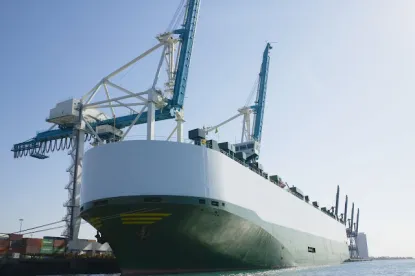On September 28, 2016, following a bench trial, the United States District Court for the Southern District of Alabama issued a decision on the competing maritime liens of a physical supplier and the purported assignee of a fuel trader arising out of a single fuel supply to a pipelay vessel in Mobile, Alabama. The fuel trader was part of the international OW Bunker conglomerate, which controlled a large share of the global bunker supply. The fuel trader contracted with the vessel owner to provide fuel to the vessel in Mobile, Alabama. A separate OW entity contracted with a physical supplier in Alabama to provide the fuel to the vessel. After the fuel was supplied to the vessel, the OW Bunker conglomerate collapsed, spawning numerous bankruptcies both in the United States and abroad.
Following the OW collapse, vessel owners, including the vessel owner for the above fuel supply, faced competing claims for payment by physical suppliers, OW Bunker entities, and ING Bank as the purported assignee of OW’s receivables. The OW collapse sparked dozens of vessel arrests around the world, including numerous arrests and/or interpleader actions in the United States. In our prior client alerts, we reported on other pending OW-related actions, including several in which courts have ruled upon dispositive motions regarding lien claims.
In the Alabama action, the vessel owner deposited security with the court to cover the amount of the fuel supply to be distributed according to the court’s ruling on what entity, if any, had a maritime lien. The Alabama case went to trial in June 2016, and the court’s lengthy decision marks the first opinion from any court in the United States following a trial on the merits involving the OW collapse.
In its ruling, the court found that the physical supplier did not have a maritime lien for the supply of necessaries because the fuel in question was not provided on the order of the vessel owner or someone authorized by the vessel owner to bind the vessel. Accordingly, the physical supplier’s claim did not satisfy all of the required elements for a lien for the provision of necessaries under United States statute. Conversely, the court found that OW Bunkers UK, which was the contractual counterparty of the vessel owner for the fuel supply, did have a maritime lien even though the OW entity did not physically supply the fuel. The court further found that OW Bunkers UK had validly assigned all rights in the recovery of its maritime lien to ING Bank. Accordingly, the court found that ING Bank, as an assignee, had a valid maritime lien for the supply of necessaries against the subject vessel.



 />i
/>i

